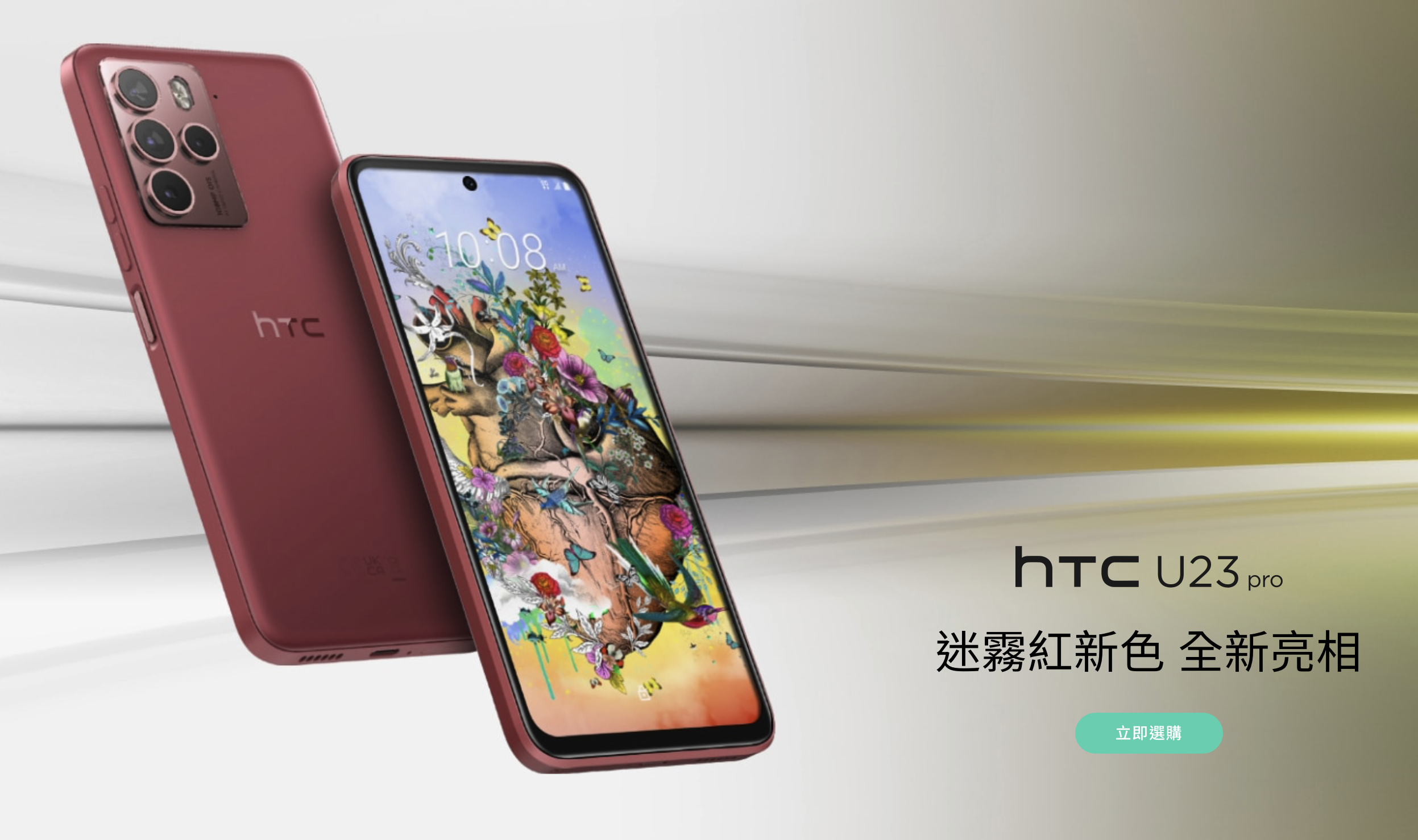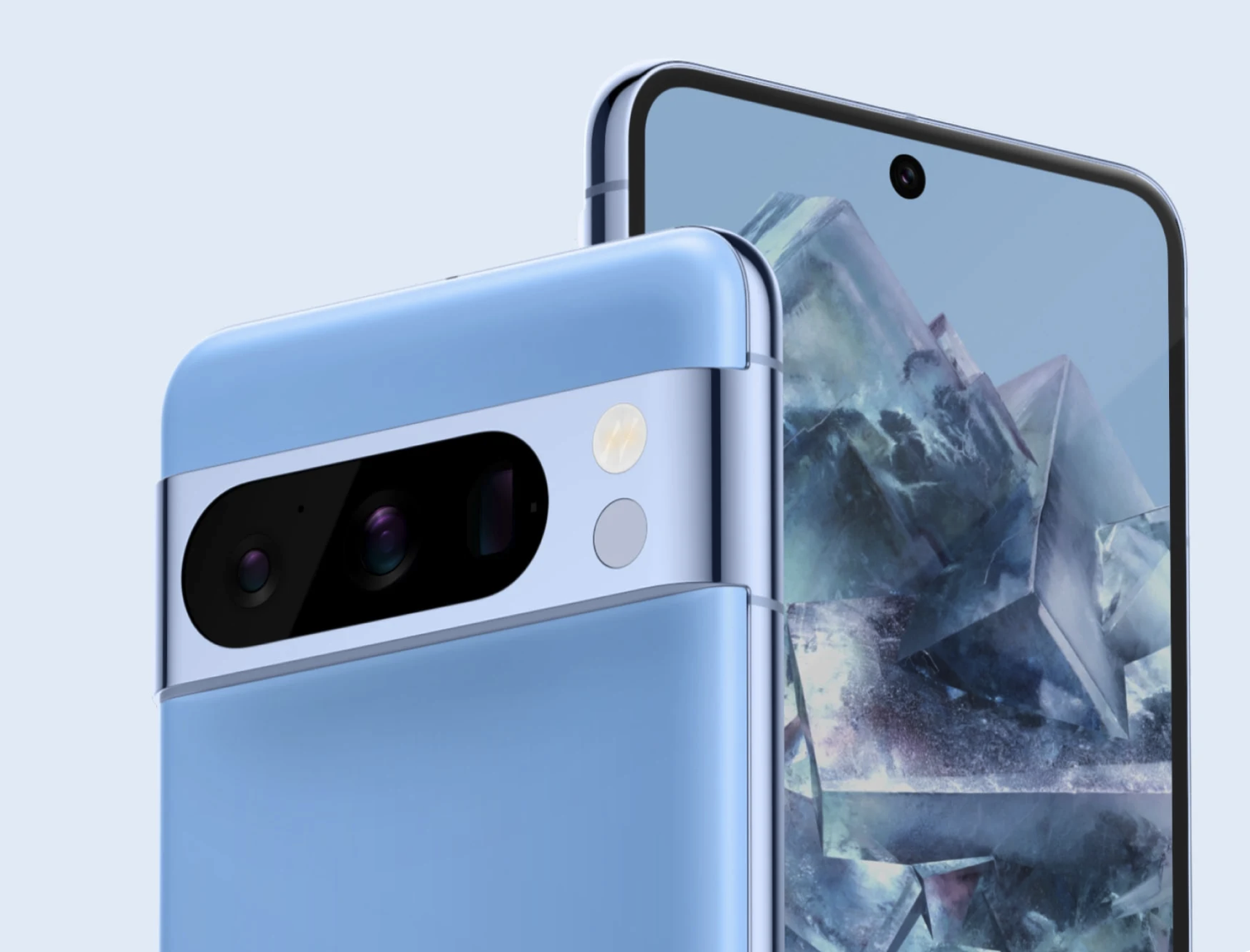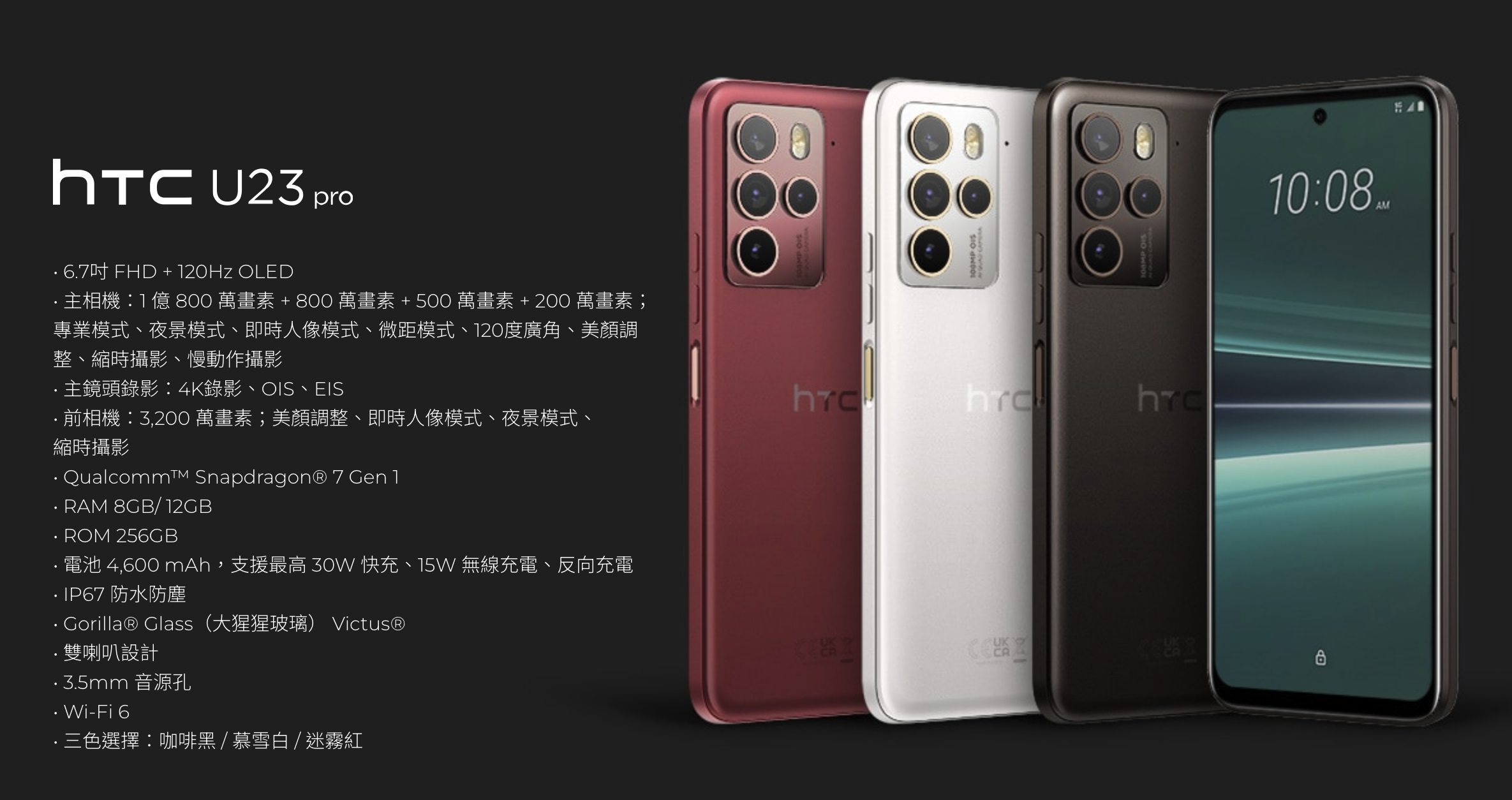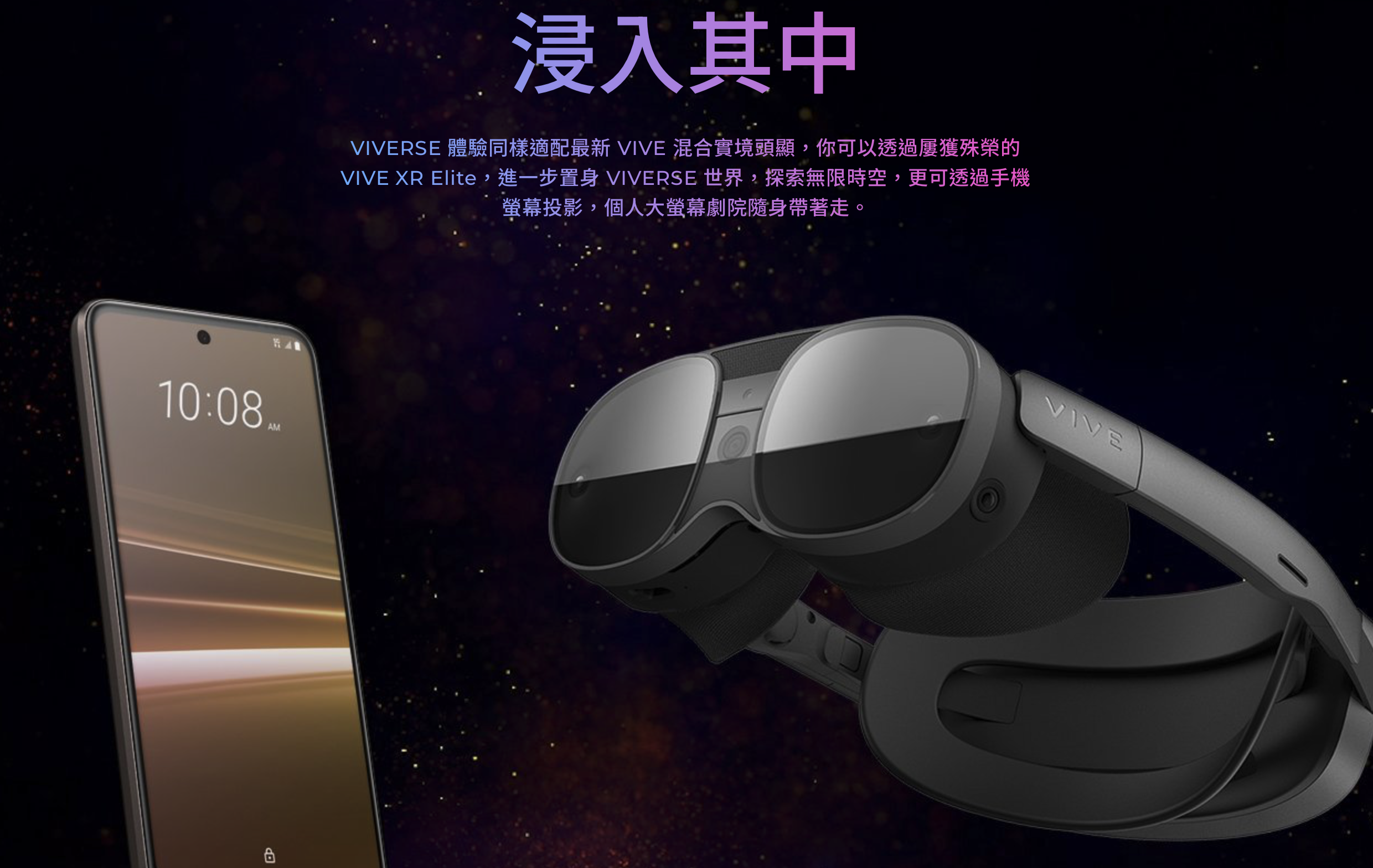 Hardware Tutorial
Hardware Tutorial
 Hardware News
Hardware News
 A new high-priced but low-spec 'Android No.1' model is on the market. Is it suspected that consumers will be charged an IQ tax?
A new high-priced but low-spec 'Android No.1' model is on the market. Is it suspected that consumers will be charged an IQ tax?
A new high-priced but low-spec 'Android No.1' model is on the market. Is it suspected that consumers will be charged an IQ tax?
Some mobile phone brands are alive in name, but in fact they are dead. Some mobile phone brands are dead, but they still launch new phones every now and then to tell everyone "I'm still alive" - In December 2023, HTC, the former Android king and long-dormant, said that it would release two more phones in 2024. A new machine.

Image source: HTC
Considering that everyone has I don’t remember what HTC phones are, so let’s first review HTC’s “new debut” new phone: HTC U23 Pro has nothing worth mentioning in terms of hardware configuration—the original price of this phone is NT$15,490 (approximately RMB 3532 yuan) mobile phone even uses the Qualcomm Snapdragon 7Gen1 platform, which is positioned as a sub-flagship in 2022, and a 2MP multi-camera combination. The maximum charging power is only 30W, and the performance is not as good as the wireless fast charging of mainland mobile phone brands.
This kind of mobile phone with outdated configurations launched by an outdated brand should "die immediately upon launch" and flow into the mainland as a "big ship of foreign garbage" for second-hand use half a year later. trading platform. But what is surprising is that HTC, which has already been emptied of its mobile phone team by Google, has not given up on the mobile phone field yet - HTC Senior Vice President of Global Business Huang Zhaoying said:
Although the current mobile phone market is called the "Red Ocean", for HTC, the most important core of mobile phones is "communication". Maybe the design of mobile phones will change in the future, but the need for communication will not disappear. Therefore, HTC will continue to launch mobile phone products and is expected to launch 1-2 (new mobile phones) in 2024.
#Then the question is, the hardware is not even as attractive as the HTC mobile phones of the Sony Xperia series. What is the purpose of "living on" until now?
Why is HTC falling behind?
In my opinion, there are roughly three reasons why HTC is lagging behind: internal confusion, marketing mistakes and declining competitiveness.
In the early days of the brand's development, HTC rose rapidly with high-quality hardware design and pursuit of innovative technology - HTC was one of the first manufacturers to launch Android smartphones , and has won the favor of the market with its products such as HTC Dream. During this period, HTC was known for its boldness in innovation. It launched the world's first 4G smartphone and the first smartphone with an all-metal body design.
#However, with the rapid development of the company, HTC's internal management problems began to appear. Frequent turnover of top management, unclear strategic direction, and confusion in the decision-making process have caused HTC to gradually lose its direction in the market. Internal chaos not only affects product development progress, but also leads to the loss of talent and a decline in innovation capabilities. For example, in early 2018, Google directly acquired HTC’s Pixel team and some technology property rights for US$1.1 billion. This acquisition almost hollowed out HTC’s mobile phone team, and also caused the product strength of HTC’s mobile phones to decline one after another.

Image source: Google
In addition, HTC’s marketing mistakes are also one of the key reasons why it falls behind. Despite its advantages in product design and technological innovation, HTC has failed to effectively translate these advantages into market influence. Compared with the large-scale marketing activities of competitors such as Apple and Samsung, HTC's marketing appears to be relatively low-key and passive, resulting in a continuous decline in the brand's awareness and appeal in the minds of consumers.
# As time goes by, HTC’s competitiveness in the smartphone market gradually declines. On the one hand, its product line lacks a clear differentiation strategy and cannot effectively cope with the dominance of Apple and Samsung in the high-end market; on the other hand, in the mid- to low-end market, HTC also faces fierce competition from mainland brands such as Huawei and Xiaomi. . These brands quickly occupied the market with their cost-effective products, while HTC struggled to compete with them in terms of price and performance.
The high-end stack cannot support the configuration, and the low-end cannot bring down the price
It stands to reason that when the product has fallen behind, If mobile phone brands want to revitalize their brands, they must differentiate themselves from other products on the market, either by using the strongest configuration to build a true flagship phone and return to the first echelon; or by using low prices to compete with other brands. And began brand transformation.
But in this multiple-choice question of "high-end or low-end", HTC resolutely chose "or" - its high-end mobile phones cannot compete with competitors in terms of configuration. It is difficult to compete with low-end products in terms of price. In the high-end smartphone market, consumers expect more than simply stacking materials. Product experience is equally important. Although HTC strives to launch high-end products, it often cannot compare with the first-tier flagship phones in terms of camera performance, performance scheduling, battery life, and screen technology.

Image source: HTC
In the low-end market, HTC, which is already unable to make ends meet, cannot engage in a price war with other brands. Around 2018, Huawei, Xiaomi, OPPO and vivo are rapidly occupying the domestic entry-level mobile phone and overseas mid-range mobile phone markets through cost-effective strategies.
But HTC faces difficulties in cost control and brand positioning when trying to lower product prices to attract the low-end market. Price cuts mean shrinking profit margins, which is a big challenge for a company like HTC. Moreover, launching low-end mobile phones also consumes HTC's research and development costs. Indulging in launching mid-to-low-end mobile phones that no one cares about will only further consume HTC's brand influence and make HTC's mobile phone business "slowly die out."
Of course, judging from HTC’s market trends in recent years, mobile phones have long been irrelevant to HTC. VR devices such as VIVE are the core of HTC’s future brand. But can VR save HTC?
Is VR the last straw?
In October 2023, CCS Insight made a prediction in a report-due to market uncertainty, HTC will sell its VR business and exit in 2026 VR market. The news quickly aroused widespread attention and discussion. HTC may no longer be the smartphone overlord of the past, but it is at least the pioneer of VR headsets. It could even be said to be the leader of the VR market at one time.
Of course, HTC soon issued a stern statement denying rumors of withdrawing from the VR market in 2026. In the statement, HTC also said that VR virtual reality, AR augmented reality and AI artificial intelligence technology will be the three pillars of future technology. "These technologies will not only combine with human nature, but also release human beings' infinite imagination, thus completely changing our world." The world."
#In other words, the market potential is so huge that HTC will never give up. Besides, HTC, which has "lost everything" in the mobile phone industry, only has VR as an "opportunity card" in its hands. However, HTC, which once dominated the VR field with VIVE, was also surrounded by mainland VR companies, and its sales continued to decline. Is VR the life-saving straw for the drowning HTC or the straw that "breaks the camel's back"? At present, it seems more like the latter.

Picture source: HTC
And insist on high-end VR split machine HTC has long missed the early dividends of wireless all-in-one VR headsets. The new generation of consumer VR headset users prefer Quets, PS VR and even the unreleased Apple Vision Pro instead of the split-design VIVE. . Even though VIVE has launched all-in-one VR machines such as VIVE Focus, HTC's technical capabilities are indeed somewhat inferior in the field of multi-degree-of-freedom spatial positioning and cannot compete with all-in-one VR equipment that has accumulated many years of experience.
On one side are HTC mobile phones that will definitely not be sold, and on the other side are HTC VR headsets that will probably not be sold in the future. Judging from this dilemma, "Glory "Quiting" and returning to behind-the-scenes manufacturing may be HTC's final destination.
The above is the detailed content of A new high-priced but low-spec 'Android No.1' model is on the market. Is it suspected that consumers will be charged an IQ tax?. For more information, please follow other related articles on the PHP Chinese website!

Hot AI Tools

Undresser.AI Undress
AI-powered app for creating realistic nude photos

AI Clothes Remover
Online AI tool for removing clothes from photos.

Undress AI Tool
Undress images for free

Clothoff.io
AI clothes remover

Video Face Swap
Swap faces in any video effortlessly with our completely free AI face swap tool!

Hot Article

Hot Tools

Notepad++7.3.1
Easy-to-use and free code editor

SublimeText3 Chinese version
Chinese version, very easy to use

Zend Studio 13.0.1
Powerful PHP integrated development environment

Dreamweaver CS6
Visual web development tools

SublimeText3 Mac version
God-level code editing software (SublimeText3)

Hot Topics
 1387
1387
 52
52
 Leica Sofort 2: Strong Leica taste, but the image quality is not satisfactory
Jan 03, 2024 pm 04:08 PM
Leica Sofort 2: Strong Leica taste, but the image quality is not satisfactory
Jan 03, 2024 pm 04:08 PM
Yes, I spent more than 3,000 yuan to buy a real Leica camera. This is not a joint brand between Xiaomi and Sharp. It is a real Leica camera. It can even be found in the official Leica APP. It is a brand new product launched by Leica just last month - Sofort2. (Picture source: Photographed by Lei Technology) Last month I wrote an article commenting on Leica’s new machine, which is simply cutting leeks. The price of more than 3,000 yuan to buy such a machine is extremely high in the polaroid market. A backward product must have too much money and no place to spend it, and is simply a "big mistake". But adhering to the concept that if I don’t go to hell, who else will, I still placed an order for the Leica Sofort2 on the night it went on sale and became a “real” Leica user. Appearance: An exquisite toy? Leica Sofo
 OPPO did the right thing by giving up ProXDR
Jan 06, 2024 pm 11:37 PM
OPPO did the right thing by giving up ProXDR
Jan 06, 2024 pm 11:37 PM
Not long ago, OPPO announced at the Paris Film Festival that it was working with Kazakhstan and the Soviet Union to create a new generation of super light and shadow imaging systems, which will be launched on the OPPO Find X7 series. Choosing to announce this news at the world's largest and most influential photography exhibition shows how much OPPO attaches importance to the new generation of ultra-light and shadow imaging systems. According to OPPO, the new generation of Super Light and Shadow imaging system mainly consists of three parts: - Super Light and Shadow full main camera system, from increasing the zoom magnification to creating multi-view creative freedom; - Super Light and Shadow image engine, using more calculations to achieve less Computational traces; - Ultra-light and shadow ProXDR display, a photo display technology that conforms to the screen viewing method. Among them, "super light and shadow full main camera system" refers to the hardware of the imaging system, and "super light and shadow image engine" refers to the image
 Can Meizu 21 Pro compete head-to-head with flagships from major manufacturers?
Jan 03, 2024 pm 06:10 PM
Can Meizu 21 Pro compete head-to-head with flagships from major manufacturers?
Jan 03, 2024 pm 06:10 PM
On the last day of November, Meizu took advantage of the new wave of Snapdragon 8Gen3 phones to bring its annual flagship new phone, Meizu 21. Not long ago, this site also conducted a review of this product. It is a mobile phone with obvious advantages and disadvantages. Moreover, Meizu 21 currently only has one model, unlike other brands that are divided into medium and large sizes. For those who want a super flagship, Meizu 21 seems a bit not “Pro” enough. (Photo source: Photographed by this site) However, recent news about Meizu 21Pro has appeared on the Internet, which is good news for Meizu friends who want more extreme configuration and experience. The screen of Meizu 21 is not strong enough? 2K screen is coming! The charging power of Meizu 21 is not high enough, 100W fast charging is coming! Could it be that Meizu 21 is just a “small test”?
 Redefining human-computer interaction, Honor MagicOS 8.0 is officially released!
Jan 11, 2024 pm 10:06 PM
Redefining human-computer interaction, Honor MagicOS 8.0 is officially released!
Jan 11, 2024 pm 10:06 PM
On January 10, 2024, Honor held its first offline conference of the year in Shanghai, where MagicOS 8.0 officially debuted. MagicOS8.0 is a new self-developed operating system created by Honor. It is the industry's first new generation of human-computer interaction - intent-recognized human-computer interaction. In addition, the new system also brings many new functions based on AI, such as "Any Door", "Conversation into Movies", "Multi-modal Schedule Management", etc. (Photographed by Lei Technology) Honor calls MagicOS8.0 a new generation of interactive mode system after command line interaction, graphical interaction and natural interaction. As for how awesome it is, let’s take a look below. A system that can learn, a system that understands you better. When it comes to "AI", in fact, Honor created its first smartphone as early as 2016.
 Razer Viper V3 Pro review: What's the trade-off between power and portability?
Jan 03, 2024 pm 04:17 PM
Razer Viper V3 Pro review: What's the trade-off between power and portability?
Jan 03, 2024 pm 04:17 PM
In the discussion about gaming mice some time ago, Xiao Lei mentioned that the first true “gaming mouse” was the Razer Boomslang released by Razer in 2003 – a USB game with a DPI of “up to” 2500 and a polling rate of 125Hz. mouse. But in fact, the statement is not accurate, because this 2100/25 polling rate 00DPI Boomslang is actually an upgraded version of this series. Its previous generation, Boomslang released in 1999, is the real first game. mouse. Compared with the second generation released 4 years later, the first generation Boomslang used a more primitive PS/2 interface, and the polling rate was only 10-200Hz; until 2005
 New affordable Meta Quest 3S VR headset appears on FCC, suggesting imminent launch
Sep 04, 2024 am 06:51 AM
New affordable Meta Quest 3S VR headset appears on FCC, suggesting imminent launch
Sep 04, 2024 am 06:51 AM
The Meta Connect 2024event is set for September 25 to 26, and in this event, the company is expected to unveil a new affordable virtual reality headset. Rumored to be the Meta Quest 3S, the VR headset has seemingly appeared on FCC listing. This sugge
 Redmi Note 12 Turbo: Use tricks to create a flagship experience
Jan 15, 2024 pm 11:03 PM
Redmi Note 12 Turbo: Use tricks to create a flagship experience
Jan 15, 2024 pm 11:03 PM
In the TOP10 list of mobile phones with the largest shipments in 2022 announced by the market research organization Canalys, a mobile phone of the domestic brand Redmi appeared. Redmi Note 11 has also become the only domestic mobile phone on the list. When it comes to Redmi, every product is highly praised. It not only puts a lot of effort into materials and performance, but also provides a high-end flagship experience at a preferential price. What we are going to talk about today is Redmi’s latest Redmi Note12 Turbo, which uses magic to create a flagship experience. Appearance: In addition to releasing three standard colors of carbon fiber black, star sea blue, and ice feather white, Redmi Note12 Turbo also cooperated with "Harry Potter" to jointly create Note12 Turbo
 Huawei StarLight, wants to revolutionize Bluetooth?
Jan 11, 2024 pm 09:51 PM
Huawei StarLight, wants to revolutionize Bluetooth?
Jan 11, 2024 pm 09:51 PM
At a press conference some time ago, Huawei officially released a new generation of wireless connection technology - NearLink. Different from previous wireless technologies, NearLink is not developed based on the specifications of traditional wireless technologies such as Bluetooth, but Huawei's years of wireless experience. With the accumulation of technology, a new wireless connection specification is created. If you didn’t watch the press conference, it doesn’t matter. Let’s take a quick look at StarLight: it uses a set of standards to combine the advantages of traditional wireless technologies such as Bluetooth and WIFI. This technology is suitable for consumer electronics, smart homes, new energy vehicles, and industrial intelligence. Various scenes such as construction. Compared with Bluetooth technology, the power consumption is reduced by 60%, the transmission rate is increased by 6 times, it has lower latency, more stable connection and anti-interference ability, the coverage distance is increased by 2 times, and the number of connections is increased by 10 times. above



